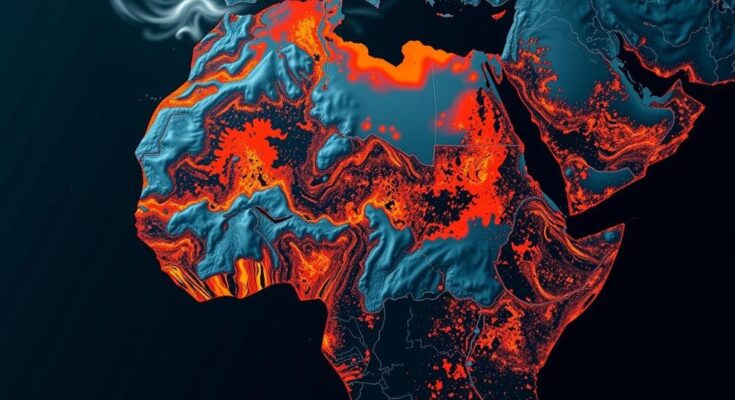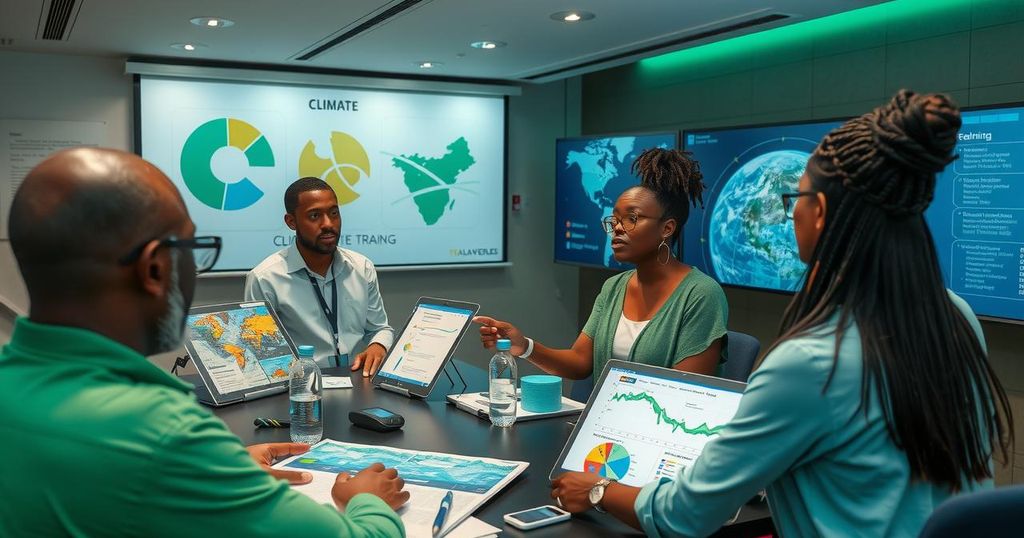Africa is disproportionately impacted by climate change, suffering severe weather events despite contributing only 4% of global greenhouse gas emissions, according to a report from the World Meteorological Organization. The erratic weather patterns and intensified flooding highlight the urgent need for awareness and action.
The African continent is experiencing significant adverse effects as a consequence of climate change, despite its minimal contribution of approximately 4% to global greenhouse gas emissions. Recent findings from the World Meteorological Organization underscore this predicament, highlighting how climate change has led to erratic weather patterns across extensive regions of Africa and intensified flooding incidents. Experts assert that these extreme weather phenomena are fundamentally linked to the changing climate. The report elucidates that Africa is disproportionately suffering from the repercussions of climate disruptions, necessitating urgent attention to mitigate further impacts.
The issue of climate change presents a pressing challenge globally, with particular ramifications for vulnerable regions such as Africa. Although Africa’s contribution to global emissions is relatively low, the continent is at the frontline of environmental challenges. Reports from authoritative bodies like the World Meteorological Organization provide critical insights into how climatic alterations are disrupting traditional weather cycles, resulting in increased instances of severe weather, including flooding and droughts. Addressing these changes is essential not only for environmental stability but also for the socioeconomic well-being of African nations.
In summary, Africa is facing severe challenges due to climate change, which is leading to extreme weather events, including more intense flooding. The continent’s contributions to global greenhouse gas emissions are minimal; nonetheless, it is disproportionately affected by climate change. Urgent measures are required to adapt and respond to these changes to safeguard the future of the region.
Original Source: www.wionews.com




